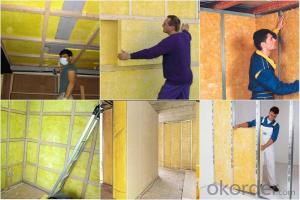Thermal Insulation and Fireproof Insulation glass wool price and glass wool insulation
- Loading Port:
- Tianjin
- Payment Terms:
- TT OR LC
- Min Order Qty:
- 5000 m²
- Supply Capability:
- 20000 m²/month
OKorder Service Pledge
OKorder Financial Service
You Might Also Like
1.Description of Glass Wool Blanket:
Glass wool, which belongs to glass fiber , is a kind of man-made inorganic fiber. It is made from fibrosis glass melt in wool shape, which belongs to inorganic fiber and fiber in its chemical ingredient. Its merit is better in shape, low density and volume, low in thermal conduction, better heat preservation and thermal insulation, fine sound absorption, corrosion-resistant and stable chemical property. Glass wool blanket, glass wool board, glass wool pipe, which made from glass wool, largely use in construction, chemical, electronic, electricity, metallurgy, energy industry and community with good performance in heat preservation, heat insulation, sound absorption.
2.Main features of Glass Wool Blanket:
1) Heat-preservation and heat-insulation, sound absorption and noise reduction
2) Damp proof property
3) Excellent fire proof performance
4) Thermal stability, high temperature heat-stability, durability, high temperature shrinkage resistance
5) Non-poison, not contain rock wool and not grow the mould
6) Thin and long inner fiber
3.Glass Wool Blanket Images:
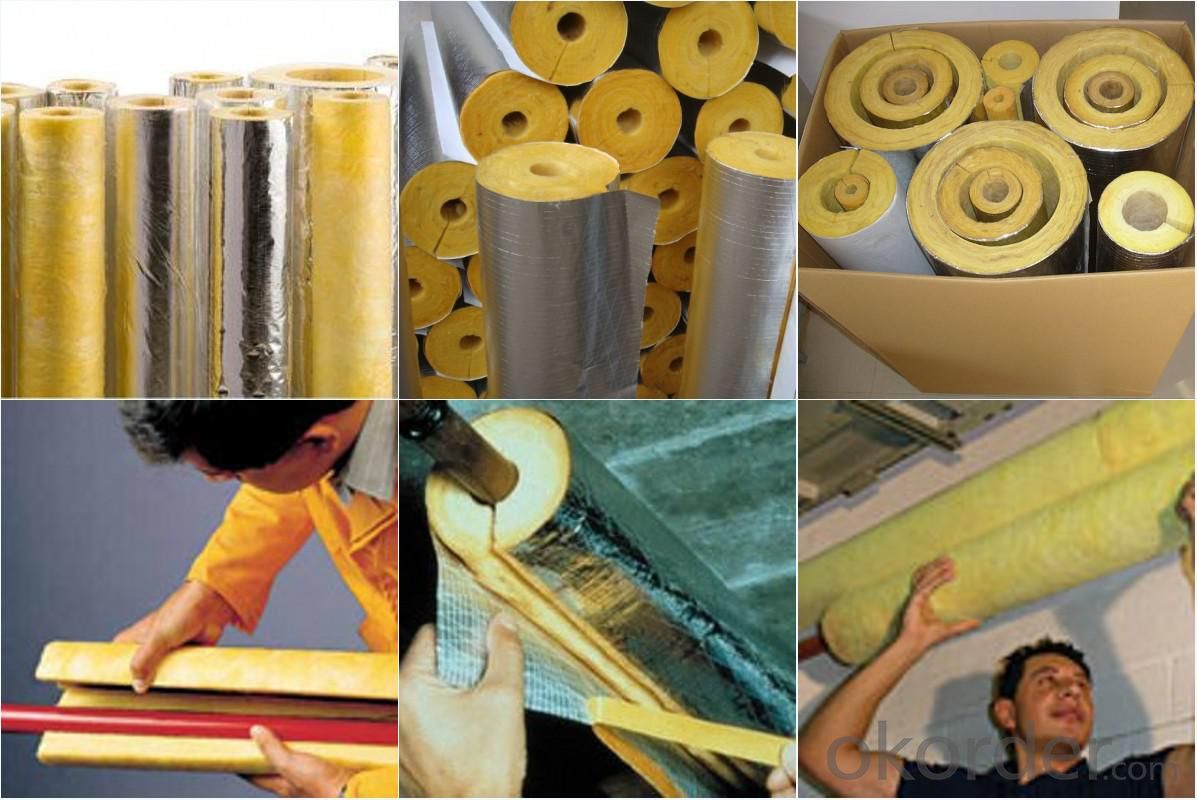
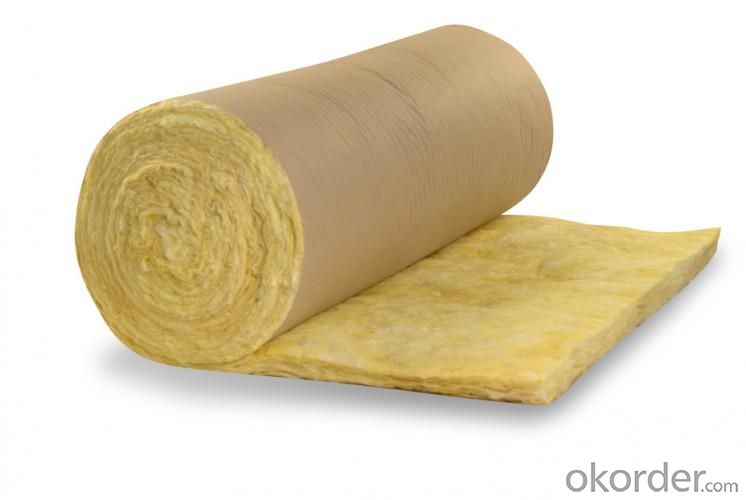
4. Glass Wool Insulation Blanket Technical Parameters:
Property | High/low temperature resistance, oil and fuel resistance, weathering resistance, O zone resistance etc. |
Shape | According to your requirement. |
Color | Any color is available ,according to your requirements. |
Material | NBR, CR, SBR, EPDM, IIR, NR, EP, Silicone, VITON etc. |
Hardness | 30-90ShoreA |
Delivery | In 10 days |
Packing | Plastic bag & carton box or according to your requirements. |
Application | Electronic field, industrial machine & equipment, house-hold appliance, telecommunication, automobile, medical equipment industry etc. |
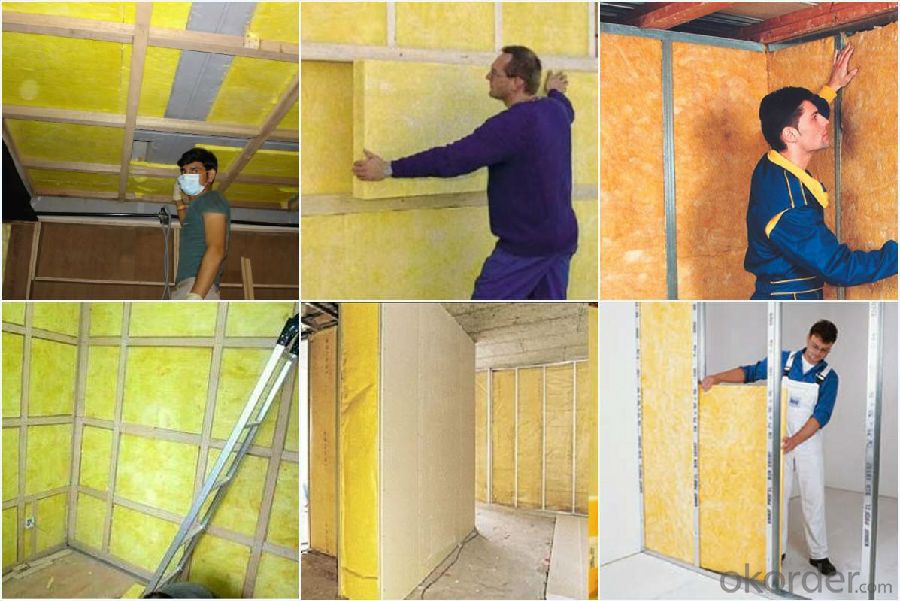
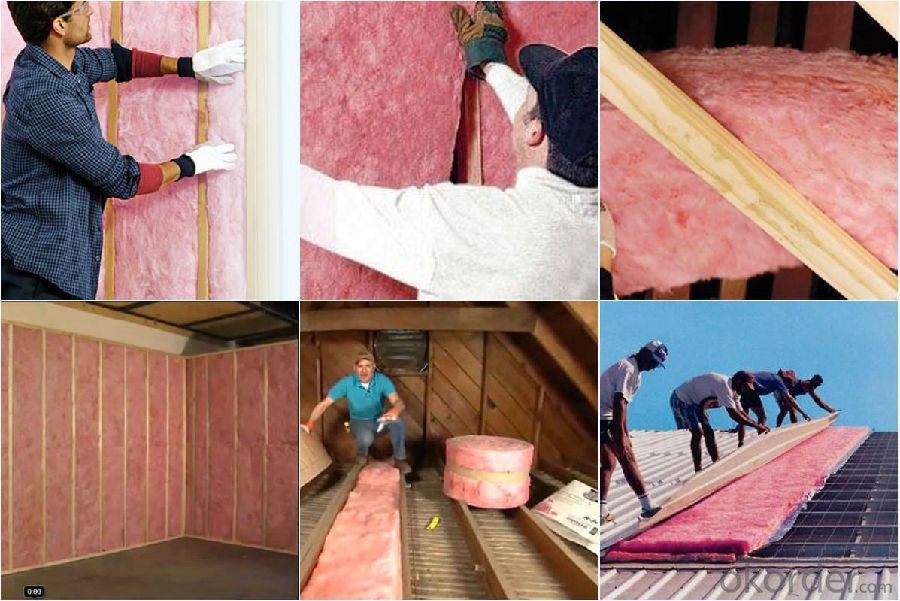
5.FAQ
We have organized several common questions for our clients,may help you sincerely:
①How about your company?
A world class manufacturer & supplier of Glass Wool Blanket is one of the large scale professional investment casting production bases in China,consisting of both casting foundry forging and machining factory. Annually more than 8000 tons Precision casting and forging parts are exported to markets in Europe,America and Japan. OEM casting and forging service available according to customer’s requirement.
②How to guarantee the quality of the products?
We have established the international advanced quality management system every link from raw material to final product we have strict quality test; We resolutely put an end to unqualified products flowing into the market. At the same time, we will provide necessary follow-up service assurance.
- Q:What is the abrasion resistance of fiberglass mat tissue?
- The abrasion resistance of fiberglass mat tissue is relatively high. Fiberglass mat tissue is made up of fine fibers of glass that are woven or pressed together to form a mat. These fibers are known for their strength and durability, making them resistant to abrasion. This means that the fiberglass mat tissue is less likely to wear, tear, or become damaged when subjected to friction or rubbing against other surfaces. It can withstand the scraping, scratching, or rubbing action without losing its integrity or structural integrity. Therefore, fiberglass mat tissue is often used in applications where abrasion resistance is important, such as in the construction industry for reinforcing concrete or in the manufacturing of composite materials.
- Q:What is the impact resistance of fiberglass mat tissue?
- The impact resistance of fiberglass mat tissue is quite high due to its inherent properties and construction. Fiberglass mat tissue is composed of fine glass fibers that are randomly arranged and bonded together with a binder material. This arrangement creates a strong and flexible mat that can withstand impacts and external forces. The random orientation of the glass fibers allows for the distribution of stress and energy across the entire mat tissue. When an impact is applied, the fibers absorb and disperse the force, preventing it from being concentrated in one area. This property helps to minimize the risk of cracks, fractures, or failures in the material. Additionally, the binder material used in fiberglass mat tissue provides further reinforcement and cohesion to the structure. It acts as a bonding agent, keeping the glass fibers in place and enhancing their overall strength. This bonding ensures that the mat tissue remains intact and resilient even under high impact loads. Due to its excellent impact resistance, fiberglass mat tissue is commonly used in various applications where durability and strength are essential. It is often utilized in the manufacturing of composite materials, such as fiberglass-reinforced plastics (FRP), to enhance their impact resistance and structural integrity. It is also frequently employed in the construction industry for applications like roofing, wall insulation, and soundproofing, where it provides protection against impacts and external forces. Overall, the impact resistance of fiberglass mat tissue is a key characteristic that contributes to its widespread use in numerous industries. Its ability to withstand impacts and distribute forces makes it a reliable material for applications that require strength, durability, and protection against external forces.
- Q:Can fiberglass mat tissue be used for repairing fiberglass surfboards?
- Yes, fiberglass mat tissue can be used for repairing fiberglass surfboards. Fiberglass mat tissue is a commonly used material for repairing and reinforcing fiberglass structures, including surfboards. It is lightweight, flexible, and easy to work with, making it ideal for patching up cracks or holes in the surfboard's fiberglass shell. The mat tissue is typically applied with epoxy resin, which bonds the tissue to the surfboard's surface, creating a strong and durable repair. However, it is important to note that the success of the repair depends on the skill and technique of the person performing it. It is recommended to seek professional help or guidance if you are not experienced in surfboard repairs.
- Q:Is fiberglass mat tissue suitable for marine repairs?
- Yes, fiberglass mat tissue is suitable for marine repairs. It is a versatile material that provides excellent strength and durability, making it ideal for fixing and reinforcing various marine structures and components. Fiberglass mat tissue is known for its resistance to water, chemicals, and corrosion, which is essential in a marine environment. It can be used to repair hulls, decks, bulkheads, and other parts of boats and ships, ensuring structural integrity and preventing further damage. Additionally, fiberglass mat tissue is easy to work with and can be applied using various methods, such as wet lay-up or vacuum bagging, making it a popular choice for marine repairs.
- Q:Can fiberglass mat tissue be used for making lightweight automotive parts?
- Yes, fiberglass mat tissue can be used for making lightweight automotive parts. Fiberglass mat tissue is a lightweight, versatile material that is commonly used in the manufacturing of automotive parts. It offers excellent strength-to-weight ratio, making it ideal for producing lightweight components without compromising on durability and performance. Additionally, fiberglass mat tissue can be easily molded into various shapes, allowing for complex designs and customization in automotive parts. Moreover, it provides good resistance to corrosion, chemicals, and temperature fluctuations, further enhancing its suitability for automotive applications. Overall, fiberglass mat tissue is a reliable and cost-effective choice for creating lightweight automotive parts.
- Q:How does the thickness of fiberglass mat tissue affect its performance?
- The thickness of fiberglass mat tissue plays a crucial role in determining its performance. Thicker fiberglass mat tissues generally provide better strength and durability compared to thinner ones. A thicker mat tissue allows for a higher resin-to-glass ratio, resulting in improved stiffness and toughness. This increased resin content enhances the overall structural integrity and mechanical properties of the fiberglass mat tissue. It also helps to minimize the risk of delamination and improves resistance to impact and fatigue. Moreover, thicker fiberglass mat tissues are more effective in providing thermal and acoustic insulation. The increased thickness allows for a higher density of fibers, which enhances the material's ability to trap air and reduce heat transfer or sound transmission. However, it is important to note that the specific application and requirements should be considered when determining the appropriate thickness of fiberglass mat tissue. While thicker tissues generally offer better performance, they may also be heavier and more expensive. Therefore, a balance must be struck between the desired performance characteristics and the practical considerations of weight, cost, and ease of installation.
- Q:Is fiberglass mat tissue suitable for automotive applications?
- Fiberglass mat tissue is indeed suitable for automotive applications. This versatile material offers numerous benefits when utilized in the automotive industry. It boasts excellent strength and durability, crucial qualities for automotive parts that must endure harsh conditions and heavy use. Moreover, fiberglass mat tissue possesses commendable thermal and electrical insulation properties, making it ideal for applications that require resistance to temperature and electrical currents. Furthermore, the lightweight nature of fiberglass mat tissue can contribute to enhanced fuel efficiency and overall vehicle performance. It is also highly malleable, enabling manufacturers to craft intricate automotive parts with precision. Additionally, this material resists corrosion, chemicals, and UV radiation, ensuring that automotive components remain reliable and long-lasting. In summary, the exceptional qualities of fiberglass mat tissue make it an optimal choice for various automotive applications, such as body panels, interior components, structural reinforcements, and sound insulation. Its strength, durability, insulation properties, lightweight nature, and resistance to corrosion and chemicals make it a dependable and cost-effective material for the automotive industry.
- Q:What is the thermal resistance of fiberglass mat tissue?
- The thermal resistance of fiberglass mat tissue typically ranges from 0.3 to 0.6 square meters Kelvin per watt (m²K/W), depending on the specific composition and thickness of the material.
- Q:How does fiberglass mat tissue perform in terms of chemical resistance?
- Fiberglass mat tissue generally exhibits good chemical resistance due to the inherent properties of fiberglass, making it suitable for various applications where exposure to chemicals is a concern.
- Q:Can fiberglass mat tissue be used for making lightweight ceilings?
- Yes, fiberglass mat tissue can be used for making lightweight ceilings. Fiberglass mat tissue is a thin and lightweight material made from fiberglass strands that are bonded together with a binder. It is commonly used in construction and building applications due to its excellent strength-to-weight ratio. When used for making lightweight ceilings, fiberglass mat tissue can provide several advantages. Firstly, it is lightweight, which makes it easier to handle and install. This can save time and effort during construction or renovation projects. Additionally, fiberglass mat tissue is also known for its high tensile strength and durability, making it a suitable choice for ceilings that need to withstand various loads and stresses. Furthermore, fiberglass mat tissue has good thermal insulation properties, which can help in maintaining a comfortable indoor environment. It can also offer sound insulation benefits, reducing noise transmission between different spaces or floors. Moreover, fiberglass mat tissue is resistant to moisture, mold, and mildew, which makes it suitable for areas with high humidity or moisture concerns such as bathrooms or kitchens. It is also non-combustible, providing an added level of fire resistance to the ceiling structure. In conclusion, fiberglass mat tissue can indeed be used for making lightweight ceilings. Its lightweight nature, strength, durability, thermal and sound insulation properties, as well as resistance to moisture and fire, make it a suitable choice for various ceiling applications.
1. Manufacturer Overview |
|
|---|---|
| Location | |
| Year Established | |
| Annual Output Value | |
| Main Markets | |
| Company Certifications | |
2. Manufacturer Certificates |
|
|---|---|
| a) Certification Name | |
| Range | |
| Reference | |
| Validity Period | |
3. Manufacturer Capability |
|
|---|---|
| a)Trade Capacity | |
| Nearest Port | |
| Export Percentage | |
| No.of Employees in Trade Department | |
| Language Spoken: | |
| b)Factory Information | |
| Factory Size: | |
| No. of Production Lines | |
| Contract Manufacturing | |
| Product Price Range | |
Send your message to us
Thermal Insulation and Fireproof Insulation glass wool price and glass wool insulation
- Loading Port:
- Tianjin
- Payment Terms:
- TT OR LC
- Min Order Qty:
- 5000 m²
- Supply Capability:
- 20000 m²/month
OKorder Service Pledge
OKorder Financial Service
Similar products
New products
Hot products
Hot Searches
Related keywords
